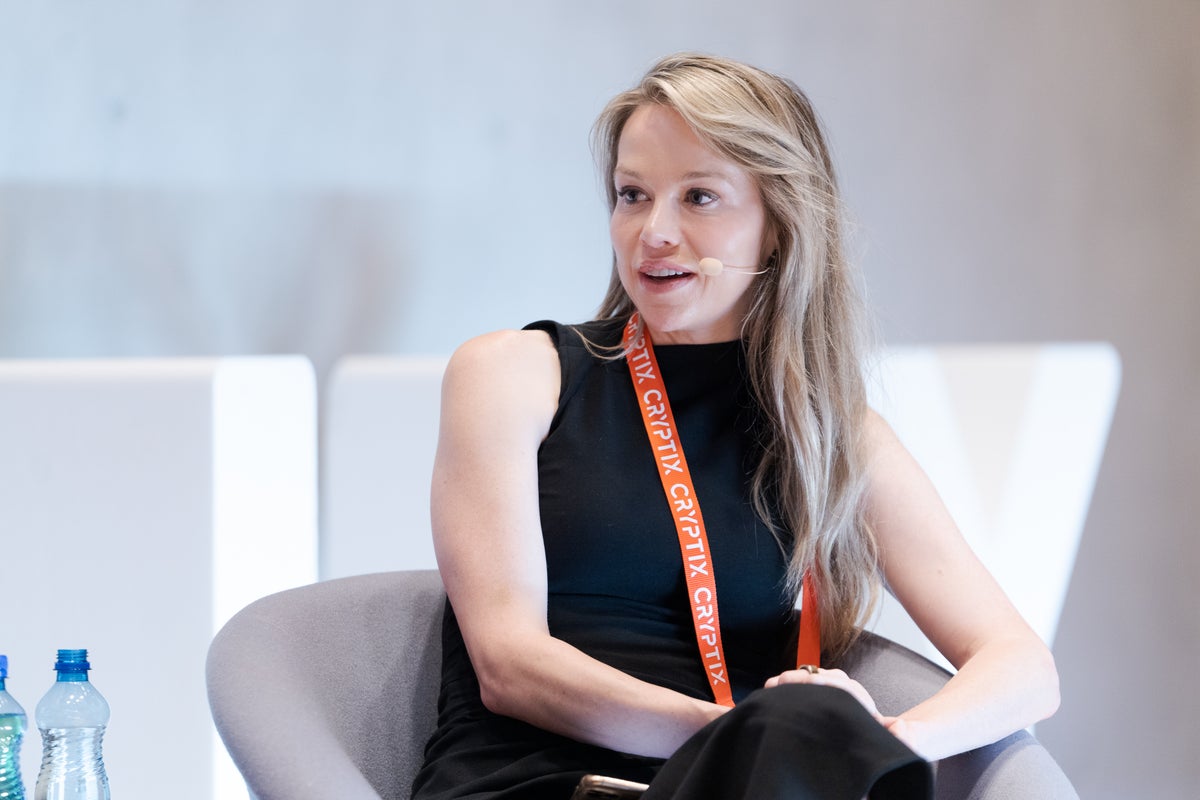Diana Biggs is chief strategy officer at Valour Inc. DEFTF, a technology company bridging the gap between traditional capital markets and digital assets. She recently spoke with Benzinga at Crypto Valley, a Zug, Switzerland-based event that took place on June 2 and June 3. Here's what she had to say:
The following text was edited for clarity and concision.
Hi, Diana. It's nice to meet you. Care to start off with an introduction?
I’ve always been interested in the internet, as well as computers and technology, and using that for connectivity and communication around the world. Today, I’m focused on looking at emerging trends and technologies, and being on the cusp of that, helping to ready those technologies into propositions that can be helpful for the future.
After my MBA, I worked in emerging markets and, later, moved back into tech and e-commerce in 2012 or so. That led me to Bitcoin BTC/USD initially in 2013. There were a lot of barriers and issues with moving money around the world and Bitcoin was global digital money with programmability.
I worked in crypto, then, for a number of years, across a number of different projects and themes of access and inclusion. I was recruited by HSBC Holdings PLC HSBC to launch their innovation team.
You've worked in management consulting and traditional finance before innovation in fintech. When did DeFi Technologies — or Valour — come into the picture?
In 2020, I was recruited by Valour to come in as CEO and to build out and launch that company. They’re an issuer of exchange-traded products (ETPs) tracking digital assets, allowing investors to get exposure to crypto through their bank or broker. The aim is to make access to emerging innovations, like digital assets, more accessible to more people and there’s a lot we still need to work on in terms of the UX and UI, and overall user experience in crypto, as well as the compliance barriers. So, ETPs are a great gateway.
We launched a Bitcoin ETP in December of 2020. It’s something the team here has done before. For instance, one of the founders — Johan Wattenström — actually co-founded XBT Provider which became CoinShares International Ltd. CNSRF.
Another founding partner, Olivier Roussy Newton, was one of the co-founders at HIVE Blockchain HIVE, the first publicly listed mining company in crypto.
We basically have a team that’s really knowledgeable in crypto and traditional finance.
What’s Valour's mission?
Last year, Valour was acquired by DeFi Technologies, a publicly-traded company out of Toronto. The entire company, after the acquisition, became Valour and we’re bridging capital markets and crypto through three verticals. ETPs are the core of the business. Then, we have an infrastructure where we’re running nodes and doing staking. The third is venture investing.
Beyond that, we’re participants in the Oracle and Pyth Network. We’re looking for ways we can help grow the DeFi ecosystem and support its security and sustainability.
What opportunities do you see in the fund business?
Our differentiating factors are two-fold. One, we want to have competitive pricing and accessibility. That’s why our first two products covering BTC and Ethereum ETH/USD are with zero management fees, unlike a lot of the other providers, some of which are charging in excess of 2%.
The second is concerned with product innovation and leveraging partnerships.
As a market participant in the listed market, where do I access these products?
Our first market was the Nordic Growth Market. We’ve, since, also been listed in Germany on the Börse Stuttgart, as well as Euronext Paris and Amsterdam ERNXY. Valour co-led an investment into SEBA Bank. We’ve also launched a partnership with them for asset-backed products trading one-to-one with the underlying, like the SEBA Valour Metaverse Index (SVMETA). We’re continuing to work on more of those types of world-first products and, through that partnership, also be able to list them in other geographies.
Tell me about the venture business.
On the venture side, we’re excited about helping support new startups in the space and fostering the building of this ecosystem with our internal balance sheet.
One of the investments we announced, recently, was Boba Network, an ETH scaling solution that allows for hybrid computing, providing the ability to have the computing power necessary for a lot of AI applications on top of ETH, without having to compromise for security.
We also had a gaming investment in Wilder World. We’re really keen to look more at the broader Web3 ecosystem, which is in line with our metaverse product that we will be launching for investors as an ETP.
What are your thoughts on bridging traditional finance with crypto, particularly in an environment in which there is a lot of volatility and hot sentiment?
You’re always going to have resistance and fear of change. I remember, back in the 1990s, there were many articles about how evil the internet was and how it was going to poison everyone. Similarly, with crypto, you have many in traditional finance calling for extreme action like bans. On the other extreme, we have an opportunity to build a financial system that’s more inclusive.
A lot of people who have been working inside financial institutions see how creating new infrastructure that enables composability, modularity, and new types of innovations is promising. We have an opportunity to transform a lot of the archaic systems we’re still dealing with. The brain drain into crypto reflects the trend.
What are you most excited about?
To continue these integrations and professionalize this space. What brought me into crypto, back in 2013, was for it to be an enabler of financial inclusion and a more fair banking system. There’s a lot of work that still needs to be done and we have the opportunity to help build the system in a more just way.
Visit Benzinga’s Crypto Homepage – 1,000,000+ depend on Benzinga Crypto every month
© 2022 Benzinga.com. Benzinga does not provide investment advice. All rights reserved.
Author
Administraroot

